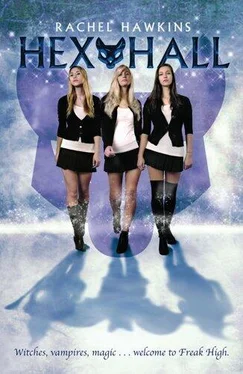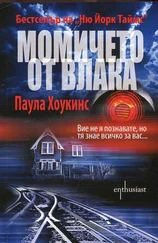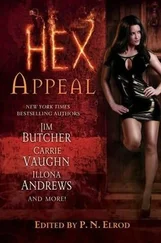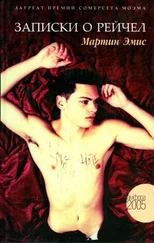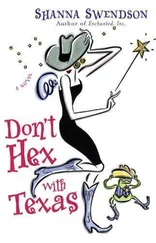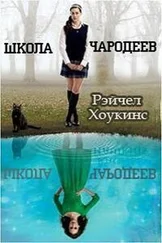"Why would he do that?" I asked.
She pushed her food around on her plate. "He and Holly were . . . really close, and he was in a bad place after she died. A couple of people said they heard him telling Casnoff that he hated what he was, wanted to be normal, stuff like that."
"Huh," I said. "So he and Holly were a couple?"
"You could say that."
I clearly wasn't going to get any more out of Jenna about that, so I said, "Well, apparently he didn't go through the Removal. He's still got powers."
"Yeah, powers over your pants," Jenna said with a giggle.
I threw a roll at her, but before she could retaliate, Mrs. Casnoff rose from her seat. She raised her hands over her head and the room fell quiet so quickly, you would have thought she'd just cast a silencing spell.
"Students," she drawled. "Dinner is now concluded. If this is not your first night at Hecate, please exit the dining hall. The rest of you are to remain seated."
Jenna gave me a sympathetic look and cleared our empty plates.
"Sorry in advance for what you're about to see."
"What?" I asked as the dining hall began to empty. "What's going to happen?"
Jenna shook her head. "Let's just say you may regret that second piece of cake."
Oh my God. Regret cake? Whatever was about to happen must be truly evil.
Everyone was filing out when Mrs. Casnoff's voice rang out. "Mr.
Cross? Where are you going?"
Archer was only a few feet from me and about to head out the door. I also noticed that he was holding hands with Elodie. Interesting. Of course it made total sense that the two people who already seemed to dislike me the most would be dating.
Archer stared down the length of the ballroom at Mrs. Casnoff. "This isn't my first year," he said. The line out the door had frozen, everyone's curious faces turned toward Archer. Elodie placed her other hand--the one that wasn't clutching Archer's like he was a prize she'd won at a carnival--on his shoulder.
"I've seen all this crap before," he insisted.
The shifter teacher, Mr. Ferguson, rose to his feet. "Language!" he bellowed.
But Archer's eyes were on Mrs. Casnoff, who looked calm and cool.
"And yet I don't believe it has sunk in," she told Archer. She gestured to the Jenna's now-empty chair. "Kindly have a seat."
I'm pretty sure he muttered an even worse string of words as he grabbed the chair across from me. "Hey there, Soph ie."
I gritted my teeth. "Hi. So what is this?"
Archer settled into his seat, a grim look on his face. "Oh, you'll see."
And then everything went black.
CHAPTER 7
As soon as the lights went out, I expected that usual thing that happens when a teacher turns off the lights: laughter, oooohs, and the rustling of clothing and squeaking of chairs that tells you people are scooting closer together, probably to make out. Instead the room was silent. Of course, there were only about twenty of us in there.
Next to me, I heard Archer sigh. It always feels weird to sit next to a guy in the dark, even if it was a guy I didn't like. Because I couldn't see him, I was very aware of him breathing, shifting in his chair, even the way he smelled (which, admittedly, was clean and soapy).
I was about to ask him again just what I was in for when a tiny square of light appeared at the front of the room next to Mrs. Casnoff. The square grew larger and larger until it was roughly the size of a movie screen. It hovered there, blank and glowing, until, very slowly, an image began to appear, like a photo developing. It was a black-and-white painting of a group of stern-faced men wearing the black suits and big hats of Puritans.
"In 1692, two witches in Salem, Massachusetts, came into their powers and created a panic that left eighteen innocent humans dead," Mrs.
Casnoff began. "A group of warlocks from nearby Boston wrote to the warlocks and witches in London and created the Council. It was hoped that with structure and resources, the Council could better control magical activity and prevent other tragedies like this from occurring."
The picture faded and morphed into a portrait of a redheaded woman in a green satin dress with a huge hoop skirt.
"This is Jessica Prentiss," Mrs. Casnoff continued, her voice filling the huge room. "She was an enormously powerful white witch from New
Orleans. In 1876, after her younger sister, Margaret, perished while having her powers stripped by the Council, Miss Prentiss proposed the idea of a safe house of sorts, a place where witches whose powers were potentially harmful could live in peace."
The portrait faded and the old photograph that I'd seen earlier, the one of the school in 1903, appeared.
"It took almost thirty years, but her dream was realized in 1903," Mrs.
Casnoff continued. "In 1923, the Council granted shapeshifters and fae the right to come to Hecate as well."
No mention of vamps, of course.
"This isn't so bad," I whispered to Archer. "Just a history lecture."
He shook his head slightly. "Just wait."
"In 1967, the Council realized that it needed a place to train and mold young Prodigium who were using their powers without the proper level of discretion. A school where they would learn more about the history of
Prodigium, and of the dreadful consequences of exposing their abilities to humans. And so Hecate Hall was born."
"Juvie for monsters," I muttered under my breath, earning me a low laugh from Archer.
"Miss Mercer," Mrs. Casnoff said, making me jump. I was afraid she was going to bust me for talking, but instead she asked, "Can you tell us who
Hecate is?"
"Um, yeah. She's the Greek goddess of witchcraft."
Mrs. Casnoff nodded. "Indeed. But she is also the goddess of the crossroads. And that is where all of you children now find yourselves. And now"--Mrs. Casnoff's voice rang out--"a demonstration."
"Here we go," Archer murmured.
Once again, a small speck of light sparkled in the front of the room, but this time, no screen appeared. Instead, the light took the form of an old man, maybe around seventy. He would have looked completely real if it hadn't been for the slight shimmer that clung to him, making him glow in the dark room. He was dressed in overalls and a plaid shirt, and a brown hat was pulled low over his eyes. A scythe dangled from his right hand. For a moment he was totally motionless, but then he turned and began swinging the scythe near the ground, like he was cutting grass that wasn't there. It was . . . eerie. It was like we were watching a movie, but the action was happening live.
"This is Charles Walton," Mrs. Casnoff announced. "He was a white warlock from a village in England called Lower Quinton. He kept to himself and earned one pitiful shilling an hour as a hedge cutter for a local farmer. In addition to that, he performed simple spells for the people of Lower
Quinton: potions for gout, the occasional love spell . . . simple harmless things. But then, in 1945, the village had a bad harvest." As she spoke, more figures began to materialize behind the man. There were four of them in all: normal-looking people in cardigans and sensible shoes. Two of them had their backs to me, but I could see a short, squat woman with a rosy face and steel gray hair, and a skinny guy wearing a deep burgundy hat with earflaps.
They looked like they should be on a box of shortbread. Both also wore stark, scary expressions on their faces, and the skinny guy was holding a pitchfork.
"The people of Lower Quinton decided that Charles must have been to blame for their crops failing, and . . . well, you can see the rest."
The man with the pitchfork darted forward and grabbed the old man by the elbow, whirling him around. The old man looked terrified, and even though I knew what was coming, I couldn't turn away. Instead I watched as three people, people who looked like they should be baking pies or sipping tea, forced the old man to the ground, and the skinny man drove the pitchfork through his neck.
Читать дальше
